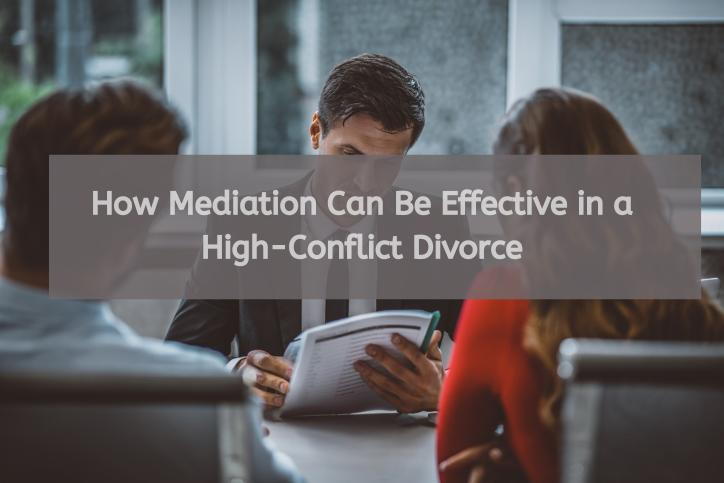
How Mediation Can Be Effective in a High-Conflict Divorce
- posted: Jun. 17, 2024
- Divorce
A high-conflict divorce is one with persistent hostility and antagonistic behavior between spouses, often marked by intense disputes over child custody, property division and other key issues. This level of conflict not only affects the couple but also has significant repercussions on children. The adversarial nature of high-conflict divorces can make resolution challenging, often leading to prolonged court battles and heightened emotional distress.
Mediation can offer an alternative to litigation in high-conflict divorces. Mediation provides a structured environment where both parties can work towards mutually agreeable solutions under the guidance of a neutral third party. This method is significantly less adversarial than litigation, helping to reduce the emotional and financial toll on the parties involved.
Private mediation allows couples the flexibility to choose a mediator who specializes in high-conflict situations. Additionally, Arizona’s court system offers Conciliation Services, a resource that provides court-appointed mediators to assist couples in negotiating settlements. This service is beneficial for those who may not have the financial means to afford private mediation.
The benefits of mediation in high-conflict divorces are multiple. First, it offers a confidential setting where issues can be discussed openly without the fear of public exposure. Second, mediation tends to be more time-efficient and cost-effective, as it focuses on collaborative problem-solving rather than legal posturing. Third, mediation emphasizes the interests of all parties, including children, helping to foster more amicable co-parenting relationships post-divorce.
Effectively mediating a high-conflict divorce requires specific strategies to address the intense emotions and entrenched positions of the parties involved. One strategy is to establish ground rules that promote respectful communication and prevent escalation of conflict. This includes setting clear guidelines for behavior during sessions and giving both parties an equal opportunity to express their concerns.
Another useful strategy is to focus on the future rather than dwelling on past grievances. By directing the conversation towards goals and solutions, mediators can help parties break loose of entrenched positions and work towards practical agreements that serve their best interests. Encouraging the use of “I” statements rather than accusatory language can also facilitate more productive dialogue.
Addressing power imbalances is essential in high-conflict mediation. Mediators must be vigilant in ensuring that neither party dominates the process and that both voices are heard equally. This may involve implementing techniques such as shuttle mediation, where the mediator meets separately with each party to prevent direct confrontation and to manage emotions more effectively.
Experts, such as child psychologists or financial advisors, can provide valuable insights and assist in resolving specific issues. These professionals can offer objective perspectives and help the parties make informed decisions, particularly in complex matters like child custody and asset division. In addition, an attorney experienced in high-conflict divorce cases and can help make the process go more smoothly.
At Clark & Schloss Family Law, P.C., our Scottsdale attorneys advocate for the interests of spouses going through high-conflict divorces in Arizona. Call 602-789-3497 or contact us online to schedule a consultation.



